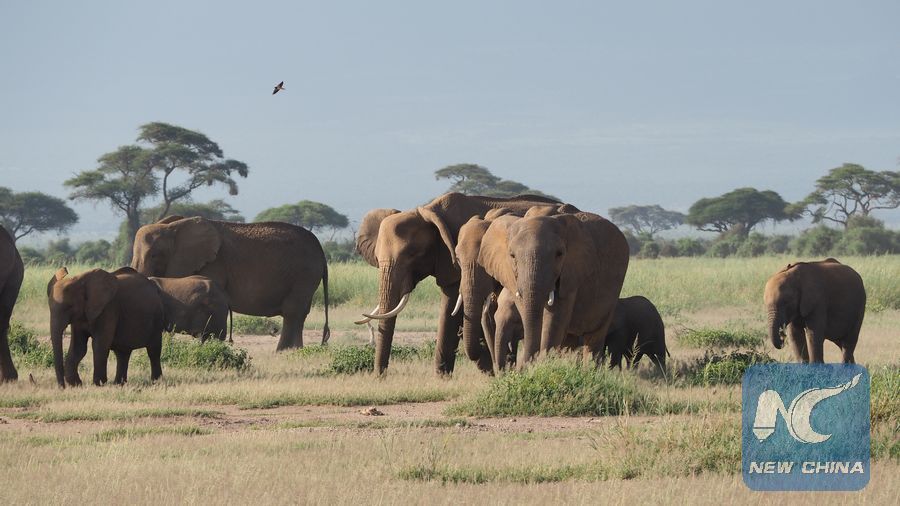
Elephants seen roaming free in Amboseli park on Jan. 3, 2016 in Kenya. (Xinhua/Zhu Shaobin)
JOHANNESBURG, Sept. 17 (Xinhua) -- The head of the United Nations Environment Programme (UNEP) Office in South Africa, Cecilia Kinuthia-Njenga, on Saturday encouraged countries taking part in the upcoming World Wildlife Conference to work towards reaching a consensus on how to sustainably manage wildlife.
The World Wildlife Conference, officially known as 17th Conference of Parties (Cop17) of the Convention on the International Trade in Endangered Species of Wild Fauna and Flora (CITES), will be held in Johannesburg from Sept. 23 to Oct. 5.
There will be much lobbying on the plenary, behind the scenes and even on social networks about nature conservation, Kinuthia-Njenga told Xinhua in an interview.
Kinuthia-Njenga, who is also the UNEP's Regional Programme Coordinator in Southern Africa, lamented that African countries go to the conference with divergent views.
She said South Africa, Zimbabwe and Namibia have proposed for international trade in elephant ivory, while other 29 African countries are against the idea.
"We hope they will come up with a resolution which protects our wildlife heritage. I also hope that African countries will find a common agreement on managing African elephants and reach consensus on sustainable management of wildlife," she said.
The UNEP official said the number of elephants in Africa has been reduced due to poaching.
Poaching is a huge challenge in the management of wildlife, and Africa should expect consuming countries to cooperate in seeking sustainable solutions, she said.
Meanwhile, Swaziland is also lobbying for the legalization of the sale of rhino horns. Kinuthia-Njenga said there will be slim chances for the proposals to succeed.
"The UN definitely hopes for a resolution on sustainable management of wildlife, and is optimistic about that," Kinuthia-Njenga said.
"We will be neutral as UN in the conference, but will provide the technical and expertise so that member states come to resolutions based on scientific research," she added.
Kinuthia-Njenga also called for concerted efforts in fighting the depletion of national resources, which she said, would impoverish local communities, therefore causing hunger and inequity.
The CITES conference will be attended by delegates from over 180 countries. The participants will get an update on actions taken after the last conference in Bangkok three years ago.



